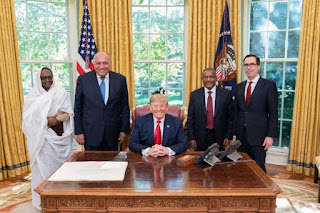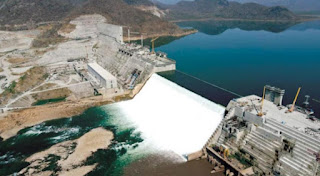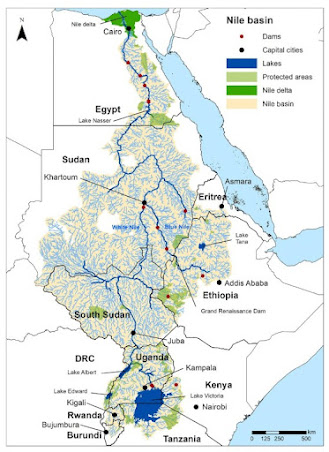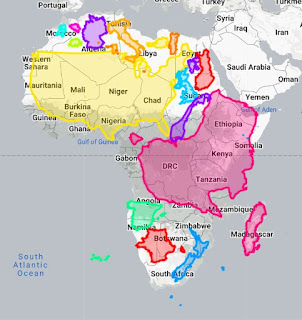Conclusion

Welcome to the last post! Throughout this blog, I have attempted to cover the complicated hydropolitics of the Nile river Basin, with a focus on the GERD. There a lot of important points that I haven't been able to cover. I will try to briefly go over these in this final post. Regarding the GERD, I have mainly focused on Egypt and Ethiopia, particularly on how the dam benefits Ethiopia (and downstream countries) as well as how the dam can potentially lead to conflicts, with Egypt looking to protect its interests. What I haven't explored in more detail is the position of Sudan which, bordering both Egypt and Ethiopia, is an interesting one. Sudan stands to benefit more from the GERD than Egypt, as the regulation of the Nile's flow will grant Sudan a "more stable annual electricity production and irrigation water supply" ( Heggy et al, 2021 ). In the first few years after the GERD was announced, Sudan initially sided with Ethiopia but, in recent years, has moved cl...




